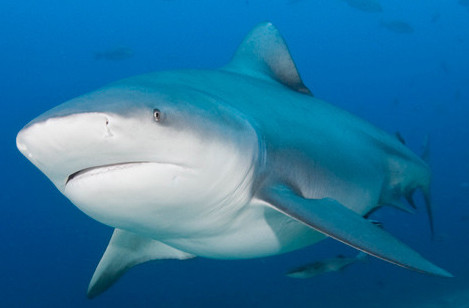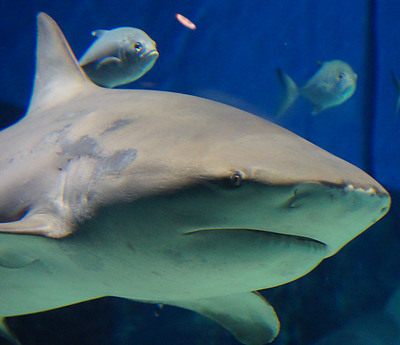
Welcome, fellow ocean enthusiasts! Let’s take a whimsical journey to unravel a mystery of the deep sea, focusing on the captivating bull shark and the question. Are bull sharks dangerous? Often depicted as the epitome of danger and menace, these fascinating creatures have sparked endless debates. But let’s dive deeper and separate fact from fiction. Are bull sharks truly the ocean’s notorious villains or are they just misunderstood underdogs?
A Marvelous Mélange of Bull Sharks
Before we can assess the potential dangers associated with bull sharks, it’s crucial to understand their remarkable traits. The bull shark belongs to the Carcharhinidae family and can be found in coastal waters worldwide. One striking feature that sets bull sharks apart from their counterparts is their tolerance for freshwater. Yes, you heard it right! They have been known to explore rivers and even venture inland, earning them the title of “river sharks.” Isn’t that simply fin-tastic?
Temperament and Myth-busting
Now, let’s address the big question: Are bull sharks dangerous? While it’s true that bull sharks have been implicated in a few rare incidents, it’s essential to put these occurrences into perspective. Contrary to popular belief, bull sharks are not mindless predators lurking around every corner looking for a human snack. In fact, bull sharks are known for their remarkable adaptability rather than aggression.
These underwater marvels are inherently curious creatures. They tend to investigate their surroundings and, sometimes, might even get a little too close to humans out of curiosity. But fear not, dear readers! It’s important to remember that bull sharks don’t seek out humans as prey. They primarily feed on fish, rays, and crustaceans, maintaining a diverse and balanced diet. We can say they are more foodies than foes!
Statistics show that bull sharks are responsible for a significantly lower number of attacks on humans compared to other shark species. So, perhaps it’s time we give these misunderstood marvels a break and appreciate their crucial role in maintaining marine ecosystems.
Ecological Role and Conservation
To truly appreciate the importance of bull sharks in our oceans, let’s delve into their ecological role. As apex predators, bull sharks play a vital part in regulating the populations of their prey species. By hunting weaker individuals, they ensure that only the fittest survive, maintaining the balance of marine ecosystems. Moreover, their habit of venturing into freshwater ecosystems connects the riverine and marine worlds, enabling the transfer of nutrients and contributing to overall biodiversity.

Let’s not forget that bull sharks are facing multiple threats, including habitat destruction, overfishing, and pollution. As caring custodians of our planet, it’s our duty to step up and safeguard these incredible creatures and the precious ecosystems they inhabit. By actively supporting conservation initiatives like creating marine protected areas and promoting sustainable fishing practices, we can secure a bright future for bull sharks, allowing them to thrive for generations to come. Together, we have the power to make a positive impact and preserve the delicate balance of our oceans.
In conclusion, the question of whether bull sharks are dangerous brings us to a refreshing truth: they are not the merciless villains depicted in popular culture. Instead, they are fascinating creatures with remarkable adaptability and an essential role to play in maintaining the health of our oceans. By dispelling misconceptions and fostering a deeper understanding, we can appreciate the beauty of these creatures and work toward their conservation.
So, dear readers, the next time you hear tales of bull sharks, remember to take them with a pinch of sea salt. Embrace their charm, admire their tenacity, and celebrate the wonders of the underwater world. After all, life is always more thrilling when we dare to explore beyond the surface. Happy diving!
As an Amazon Associate, I earn from qualifying purchases.
